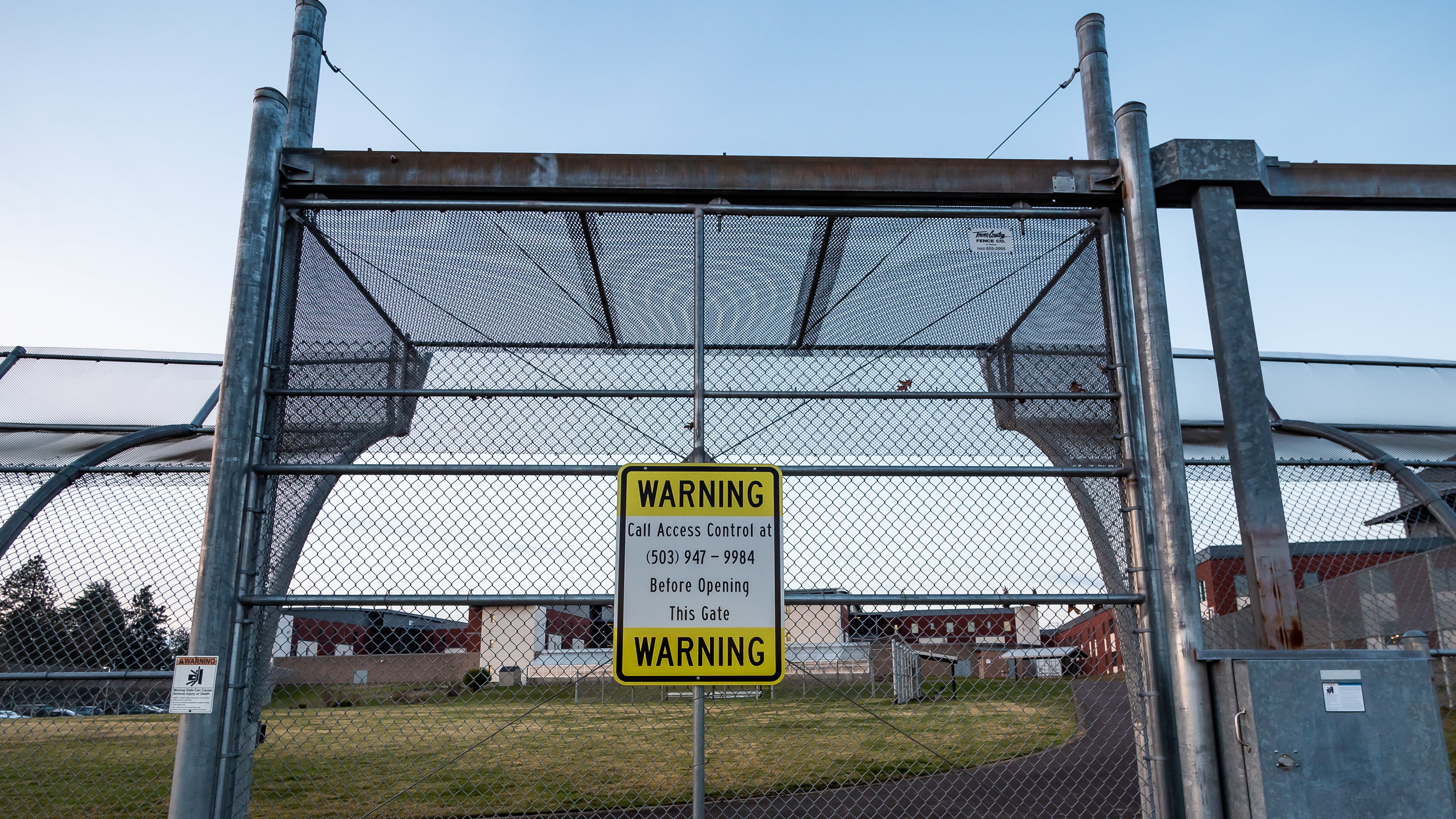The simmering fight between state officials, advocates and judges over how to end the unconstitutional— yet ongoing—practice of warehousing mentally ill people in Oregon jails while they await treatment has once again boiled over.
Likening herself to “a canary in the coal mine,” Washington County Presiding Judge Rebecca Guptill told a courtroom on Thursday that she would hold both Oregon State Hospital and the agency that controls it, the Oregon Health Authority, in contempt for their failure to fix the problem.
“The state of Oregon and the Oregon State Hospital are in a position to fix this. They need to do so,” she said from the bench, adding that the state would face thousands of dollars in fines.
Lawyers and state officials disagree, saying there’s little they can do: Oregon State Hospital, the state’s premier psychiatric institution and destination of last resort for people arrested by police in the midst of a mental health crisis, is full and has been for years.
State officials say counties need to find alternative treatment options. County officials say they don’t have nearly enough resources to do so. Everyone agrees the situation is untenable.
Litigation over this issue stretches back to at least 2002, when a federal judge issued the “Mink order” capping the amount of time people may be held in jail as they await a bed at seven days.
But the state has fallen out of compliance in recent years. In 2022, subsequent litigation resulted in another federal order, this time by U.S. District Judge Michael Mosman, requiring that patients be released early from OSH in hopes of freeing up space.
That was controversial, but worked for a time. Now, wait times have inched over the seven-day limit again.
Judge Guptill’s statements come a day after a judge in Marion County, Thomas Hart, made a similar decision, ordering the state to pay $17,500 for holding Mercy Tabb in jail for at least two weeks in June. The state has already appealed the ruling.
This is not the first time local judges have held state officials in contempt for locking people in crisis behind bars instead of providing mental health treatment. Similar cases go back to 2019.
But there’s been a recent lull amid pushback from Mosman, who has called the contempt orders “draconian” and believes state officials are making progress toward solving the problem. In recent years, state policymakers have invested billions of dollars in rehabbing Oregon’s broken mental health care system.
“I respectfully disagree with Judge Mosman,” Guptill said. “The power of contempt is not draconian and is specifically meant to address issues such as this one.”
Guptill said she’ll make the state pay two criminal defendants, Jeffrey Johnson and Arnold Lopez, $100 for every day beyond seven they were held in jail. Both were eventually transported to Oregon State Hospital.
Washington County recently updated the wording of judicial orders sending patients to Oregon State Hospital to require they be admitted within seven days. That set the groundwork for Thursday’s fireworks, District Attorney Kevin Barton tells WW.
Barton said a catalyst for the change was the death of Bryce Bybee, who was found unconscious in Washington County’s jail in 2022 after unsuccessful attempts by jail officials to get Oregon State Hospital to admit him.
“The crisis at the hospital is nothing new. We’ve known about it for years and years,” Barton says. “It’s just come to a breaking point.”

